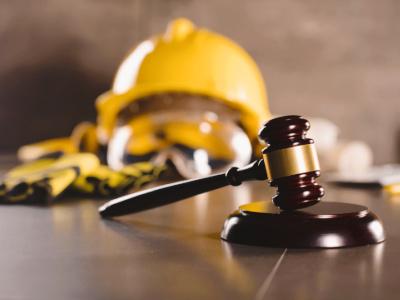203-661-6000
170 Mason Street, Greenwich, CT 06830
6 Types of Disputes That May Lead to Construction Litigation
 Construction projects can be complex, and they may involve multiple parties, including contractors, subcontractors, architects, engineers, property owners, and real estate developers. With so many moving parts, it is not uncommon for disputes to arise during the course of a construction project. These disputes can range from minor disagreements to major conflicts that require legal intervention. When litigation may be necessary to address different types of disputes, it is crucial to work with an attorney to determine the best course of action.
Construction projects can be complex, and they may involve multiple parties, including contractors, subcontractors, architects, engineers, property owners, and real estate developers. With so many moving parts, it is not uncommon for disputes to arise during the course of a construction project. These disputes can range from minor disagreements to major conflicts that require legal intervention. When litigation may be necessary to address different types of disputes, it is crucial to work with an attorney to determine the best course of action.
Common issues with construction projects that may result in disputes that lead to litigation include:
1. Payment Disputes
Many disputes that arise during construction projects are related to payment. These disputes may involve issues such as non-payment or underpayment by an owner or contractor, disputed change orders or extra charges, delays in payment processing, or disagreements over the scope of work completed. Parties who have not been paid correctly may use litigation to pursue payment for services or materials.
In some cases, a contractor, subcontractor, or supplier may file a mechanic's lien against a property if they are not paid for their services. A mechanic's lien gives a person a legal claim against the property until they receive payment. Specific legal procedures must be followed when establishing a mechanic’s lien, and this will determine whether a contractor will be able to receive payment. Litigation may be necessary when contesting mechanic’s liens or determining how claims against a property will be handled.
2. Breach of Contract
A party may be accused of a breach of contract if they did not fulfill all of the obligations that were outlined in a contractual agreement. In construction projects, contract disputes may arise if a contractor or other party failed to complete work within specified timelines or did not meet the quality standards set forth in the contract. If one party believes there has been a breach of contract, they may seek damages for any losses incurred as a result.
3. Defective Workmanship
The quality of the work performed during a construction project may be an issue that can be addressed through construction litigation. If work by contractors or other parties did not meet industry standards or specifications outlined in construction contracts, a property owner or developer may pursue litigation to address the losses they suffered as a result. Defects discovered after the completion and acceptance of the project may require costly repairs, and they could lead to delays in occupancy or use. Because of these issues, litigation may seek compensation for the losses suffered by a property owner or other parties.
4. Design Errors/Deficiencies
Mistakes made during the design phase of a project can be a factor in construction disputes. Design errors may not be discovered until a project has begun, and they can result in delays, cost overruns, and even safety hazards. A developer or other parties may pursue litigation against architects, engineers, or other parties to address faulty designs that failed to meet the applicable standards. They may seek compensation for the losses that have occurred because of the time and expense of updating designs or correcting flaws. In some cases, litigation may also address injuries to workers or the occupants of a building that occurred because of design flaws.
5. Delays and Time Extensions
Construction projects often face delays due to factors such as weather conditions, unforeseen site conditions, changes in scope, or late delivery of materials. While some delays may be unavoidable, others may have been prevented if the parties involved in a project had taken the proper steps when planning work, ordering materials, or hiring subcontractors. Construction litigation may address disputes over who was responsible for delays. Developers or other parties may seek compensation for the losses that have occurred because of these issues.
6. Scope Creep
Some construction projects may involve unapproved changes or additions to the original scope of work outlined in the contract. An owner or developer may request additional work without properly documenting and compensating contractors or other parties for these changes. When disputes arise regarding changes to a project’s scope, contractors may seek compensation for extra work performed outside of the original agreement.
Contact Our Metro New York Construction Litigation Lawyers
If you are a property owner, real estate developer, contractor, or any other party who has become involved in a construction dispute, Ivey, Barnum & O'Mara, LLC can help you determine how to proceed. Our experienced Westchester County construction litigation attorneys can provide legal representation in these situations, and we will work to ensure that your interests are protected as you seek a resolution. To schedule a free consultation, contact us at 203-661-6000. We understand how complex construction disputes can be, and we will provide you with the legal advice and representation you need to resolve these issues successfully.













